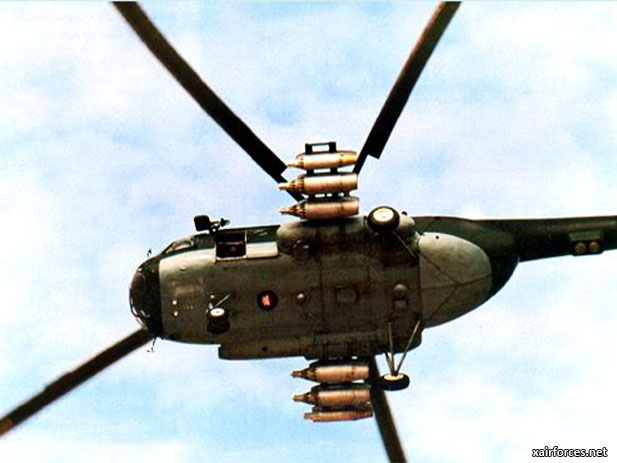
China to train Cambodian army

China has agreed to train the Cambodian army and to supply Phnom Penh with new weapons, starting with 12 helicopters, officials said.
The deal was signed in Phnom Penh Wednesday by Cambodian Deputy Defense Minister Moeung Samphan and Chinese Deputy Chief of General Staff of the Chinese People's Liberation Army Gen. Qi Jianguo, the Bangkok Post reported.
The military training and weapons "will help to boost the [Cambodian] military's capabilities," Cambodian Defense Minister Tea Banh said.
China came to the agreement with Cambodia after the United States considered, then rejected a request by Phnom Penh, Radio Free Asia reported.
It was not reported why the United States decided against going through with its own deal to train the Royal Cambodian Armed Force and supply it with weapons.
Air force to get 12 Chinese helicopters in 2013
PHNOM PENH (The Cambodia Herald) - Cambodia will soon take delivery of 12 helicopters from China as part of a defense upgrade, sources said.
The sources said Royal Cambodian Armed Forces Commander in Chief Pol Saroeun made the announcement at a meeting on Tuesday.
Air Force Commander General Sing Samnang said the Z-9 helicopters would be delivered between April and August.
Six of the helicopters will be used for transport, four will be deployed as attack helicopters and the other two used for VIP purposes, the general said.
The air force currently uses Mi-8 and Mi-17 helicopters made in Russia, he added.
Source: BEIJING, (UPI) News - 25 January 2013
Photo: The Royal Cambodian M-8 Hip Helicopter (Photo by files)
The Cambodian Air Force Status Report:
A Helicopter Squadron was formed in 1992 with a number of Mi-8 and Mi-17. After the UN monitored general elections of 1993 Norodom Sihanouk was re-instated as king. The present name of Royal Cambodian Air Force was adopted and a new roundel was introduced. After all the changes of government each time a new flag and roundel were introduced but they all had in common a variation of the Angkor temple. Two Harbin Y-12 and three BN-2 Islander were taken in service to back the three former Kampuchea Airlines An-24RV and Beech 200 of the VIP Squadron in 1993. To fulfil the need of training its own pilots six Tecnam P92 Echo 3 trainers were ordered in Italy. After delivery they formed the newly established Reconnaissance Squadron in 1995.
In 1996 a deal was made with Israeli Aircraft Industries for the overhaul of 12 MiG-21s and part of the deal was the acquisition of six overhauled Aero L-39C Albatros'. These Czech built trainers were delivered to Cambodia in 1996-97. The World Bank and especially the US cut direct foreign aid to Cambodia in mid 1997 after Hun Sen ousted coalition partner Prince Norodom Ranariddh. This also affected the RCAF deal with Israel as already four MiG-21s were sent to the IAI Lahav division and Cambodia was unable to pay for the work. Also in 1997 the VIP Squadron was taken out of the Air Force and put under governmental control in the Council of Ministry and took with it the Beech 200, Ce402 and Ce421. France donated two AS350B Ecureuils, an AS365 Dauphin, a Falcon 20 and a Fokker F28 for VIP transport. All this left the Air Force with the regular transport aircraft of two An-24RV, two Harbin Y-12 and two Islanders and they formed the Transport Squadron. In 1998 the Ministry of Defense obtained two Mi-26 helicopters flown by pilots of the Helicopter Squadron. Eventually these helicopters will pass on to the Royal Cambodian Air Force.
The Royal Cambodian Air Force is necessary for maintaining internal control in terms of demographics; its abilities should merely stay for national and domestic defense; as its abilities in terms of 'external control' is countered and checked by a far superior Royal Thai Air Force, which dominates the skies of continental south east asia; it would be in the best interest of Cambodia to evade mingling in the areas of Thai Air control. The multitude of Myanmar Air fighters that were shot down (mostly OUTDATED Mig-21 Fishbeds and severely damaging their Su-29 fighter) in the 2000 Thai-Myanmar Border Clash. It should be a warning to Cambodia and a lesson to learn.
(25.01.2013)
|